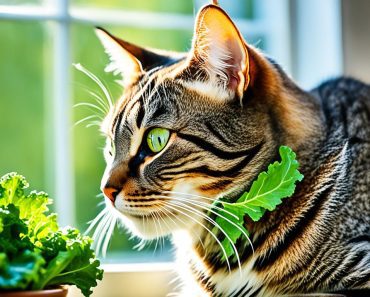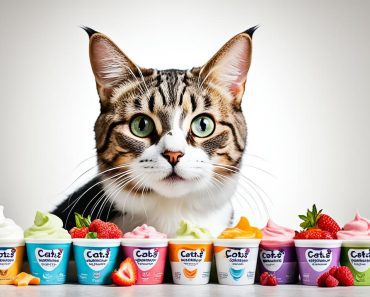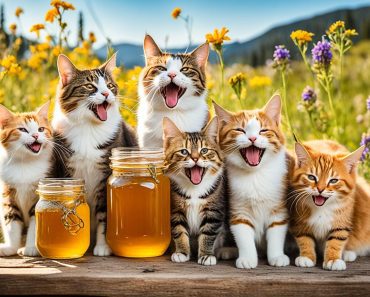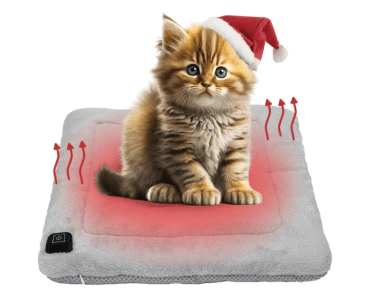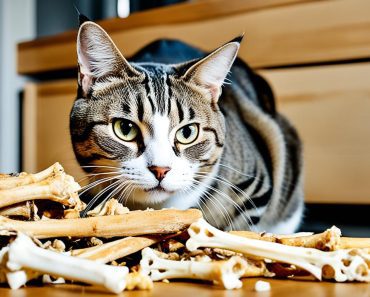As a cat owner, I often wonder if certain human foods are safe for my furry friend to consume. One question that frequently comes to mind is whether cats can eat rice. In this article, I will explore the topic of cats and rice, providing insights into their dietary needs and the potential benefits and drawbacks of including rice in their meals.
Can Cats Eat Rice? Yes, they can, in moderation.
- Cats can eat rice in small amounts, as it is non-toxic to them.
- Rice is not an essential part of a cat’s diet and does not provide additional nutritional benefits.
- Feeding cats too much rice or other carbohydrates can lead to obesity.
- If you choose to feed rice to your cat, make sure it is thoroughly cooked and free from any seasonings.
- Consult with a veterinarian for proper guidance on your cat’s diet and nutritional needs.
Is Rice Good for Cats?
Rice is a common staple in many human diets, but how does it fare when it comes to our feline friends? While rice is not inherently bad for cats, it is not necessary for their overall health. Cats are obligate carnivores, which means their bodies are designed to primarily process and derive nutrition from meat. They lack the enzymes necessary to efficiently digest grains like rice. So, while rice can provide some nutritional benefits, it is not a crucial component of their diet.
That being said, rice can offer certain health benefits for cats when incorporated in small amounts. It is a good source of dietary fiber, which can help promote healthy digestion and regulate bowel movements. Additionally, rice contains some vitamins, such as B vitamins, and minerals that can contribute to a cat’s overall well-being.
However, it is important to note that rice should not be relied upon as a substitute for a balanced feline diet. Feeding cats too much rice or other carbohydrates can lead to obesity and associated health problems. It is always best to consult with a veterinarian for guidance on the appropriate portion sizes and dietary requirements for your specific cat.
Some veterinarians may recommend incorporating brown rice into a cat’s diet, especially for cats with digestive issues. Brown rice is a whole grain and retains more nutrients and fiber compared to white rice, which has been stripped of its essential components during processing. However, it is crucial to consult with a professional to determine the best approach for your cat’s specific needs.
While rice can provide some nutritional benefits for cats, it is not necessary for their overall health. Cats thrive on a balanced diet that primarily consists of high-quality animal protein. Feeding cats too much rice or other carbohydrates can lead to health issues. It is important to prioritize a well-formulated cat food that meets all of their nutritional requirements for optimal health and well-being.
How to Feed Rice to Your Cat
If you choose to feed rice to your cat, it should be in very small amounts. The rice should be thoroughly cooked and free from any seasonings, spices, or sauces. Uncooked rice is difficult for cats to digest and may contain lectin, a natural pesticide, which can cause digestive issues if ingested in large quantities. It is important to monitor your cat for any signs of discomfort or bloating after consuming rice.
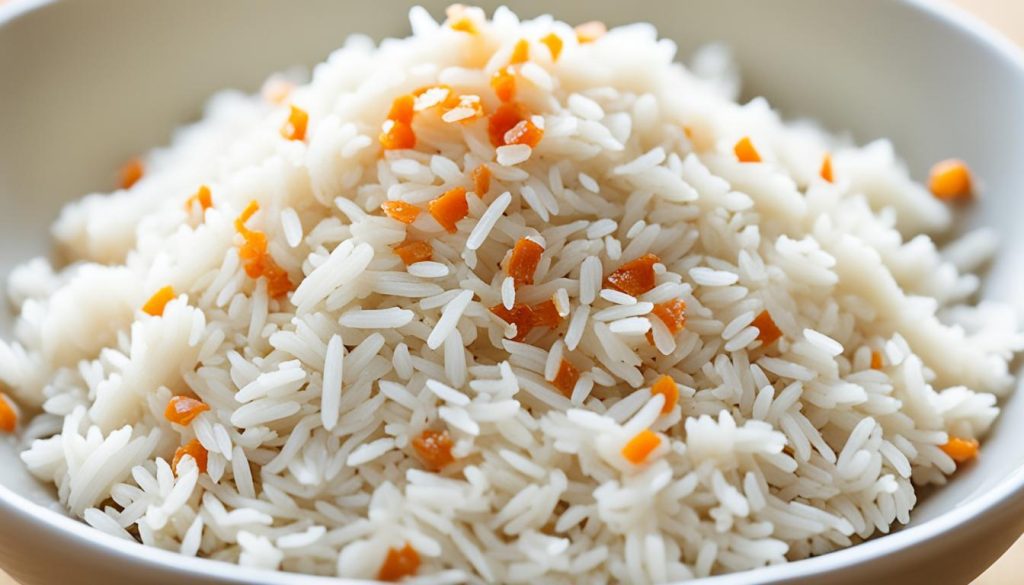
The Benefits of Cooked Rice for Cats
- Cooked rice can provide a source of carbohydrates and energy for your cat.
- It is easily digestible for cats with sensitive stomachs.
- Rice is low in fat and can be a part of a weight management plan for overweight cats.
However, it is generally recommended to avoid feeding cats rice entirely and instead focus on a quality diet and treats specifically formulated for feline consumption. A balanced cat food will provide all the necessary nutrients for your cat’s health and well-being.
Nutritional Benefits of Rice for Cats
Rice can provide some nutritional benefits for cats, depending on the type and preparation. Brown rice, which is a whole grain, contains fiber, protein, vitamins (such as B1 and B6), and minerals (such as iron and magnesium). White rice, on the other hand, has been stripped of its essential nutrients during processing and is often enriched with added vitamins and iron.
Incorporating rice into a balanced cat food product can be beneficial, but other ingredients are also important to provide the necessary nutrients for a cat’s overall health.
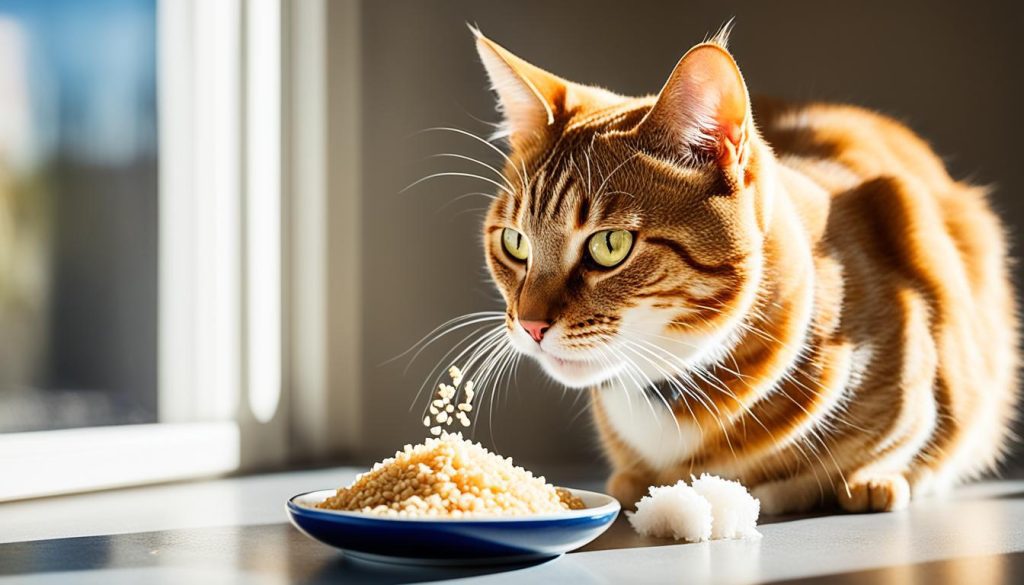
The benefits of brown rice for cats
- High in fiber: Brown rice is a great source of fiber, which can help regulate a cat’s digestive system.
- Protein content: While cats primarily require animal-based proteins, the protein content in brown rice can supplement their diet.
- Vitamins and minerals: Brown rice contains essential vitamins like B1 and B6, which are important for a cat’s overall health. It also provides minerals like iron and magnesium.
Considerations for white rice
- Nutrient depletion: White rice has undergone processing that removes essential nutrients. It is often enriched with added vitamins and iron to compensate for the loss, but the nutritional value is still lower compared to brown rice.
- Carbohydrate content: Cats do not require a high-carbohydrate diet, so the inclusion of white rice should be limited to avoid excessive carbohydrate intake.
While rice can offer some nutritional benefits, it should not be the sole focus of a cat’s diet. A balanced cat food product that includes a variety of other ingredients is necessary to provide the essential nutrients for a cat’s overall health.
Potential Issues with Feeding Rice to Cats
While cooked rice itself is not harmful to cats, there are a few potential issues to consider when incorporating rice into their diet. It’s important to be mindful of the other additives that humans often enjoy with rice, such as salt or soy sauce, as these may not be suitable for cats. Cats have different dietary requirements and sensitivities compared to humans, and certain seasonings and sauces can be harmful to their health.
Another consideration is that while rice can be beneficial in helping with digestive upsets due to its digestibility, it should not be relied upon as a complete and balanced source of nutrition for cats. Cats need a well-rounded diet that includes essential nutrients like proteins, vitamins, and minerals. Transitioning to a high-quality, easily digestible cat food specifically formulated for feline nutrition is a better option if your cat is experiencing digestive issues or if you want to ensure they receive all the necessary nutrients for optimal health.
It’s worth noting that some cats may have allergies or sensitivities to certain grains, including rice. If you notice any signs of discomfort, allergic reactions, or digestive issues after feeding your cat rice, it’s best to consult with a veterinarian for further guidance.
The Importance of a Balanced Diet for Cats
A balanced diet is crucial for maintaining your cat’s overall health and well-being. While rice can provide some benefits, it should not be the main component of their diet. Cats are obligate carnivores and require a diet high in animal-based protein for optimal nutrition. High-quality cat food products that are specifically formulated to meet the nutritional needs of cats provide a balanced combination of proteins, fats, carbohydrates, vitamins, and minerals.
- Feeding your cat a complete and balanced diet helps support their immune system, promotes healthy digestion, and contributes to a shiny coat and strong teeth.
- Proteins from animal sources provide essential amino acids that cats cannot produce on their own and are necessary for muscle development and maintenance.
- Fats in cat food provide energy and aid in the absorption of fat-soluble vitamins.
- Carbohydrates in a cat’s diet should be limited and come primarily from easily digestible sources like vegetables. They provide some energy and fiber for digestive health.
While rice can be included in your cat’s diet in small amounts, it’s essential to consider the potential issues and the importance of a balanced diet that meets their specific nutritional needs. Your veterinarian can provide valuable guidance on the best dietary choices for your cat, ensuring they thrive and stay healthy.
Conclusion
While cats can eat rice in small amounts, it is not necessary for their diet and does not provide significant nutritional benefits. Cats are obligate carnivores and do not require carbohydrates like humans do. Feeding cats a balanced diet specifically formulated for feline nutrition is essential for their overall health and well-being. It is always best to consult with a veterinarian for guidance on the best diet for your cat to ensure they receive all the necessary nutrients without any potential harm from excessive rice consumption.

